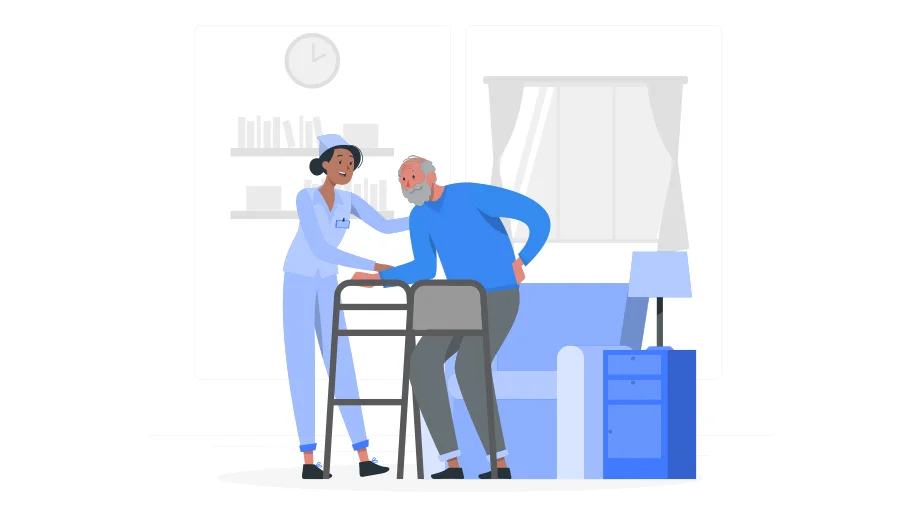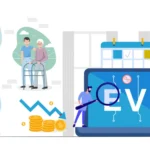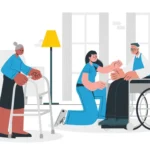Like many other industries, agencies providing at home health care are beginning to put the consumer at the centre of their business model. As a result, they’ll be focusing on customer service as the most important role in their home healthcare agency. This is especially true considering the growing demand for at home health care services; clients will be attracted to providers who offer an efficient and effective consumer-centric experience.
1) Be available and respond promptly
If a client contacts you with a complaint or request, consider implementing live-chat on your website that allows your employees to respond to the concern immediately. Or use your home care software platform to connect clients with their caregivers through stakeholder portals. The sooner you answer a client’s concern, the more likely he or she will be able to trust you and build loyalty with you.
2) Listen to your patients
Consumer-directed care is a model in which clients have the flexibility and power to choose when, where, and by whom they receive home care services. To ensure that your clients are receiving the type of care that’s best for them, it’s important to take into consideration their wants and needs. With the allGeo software platform, you can closely monitor their status and align their care plans accordingly.
3) Be on time
Late or missed visits are one of the most common complaints from at home health care providers. By implementing a home care software solution that supports Electronic Visit Verification (EVV) for proof of service, you can ensure that your providers clock in and out of their visits as scheduled. By managing and tracking your patient visits, you can keep them abreast of their status and ensure that they are satisfied with the work you do for them.
4) Keep the family connected
When a client is receiving at home health care services, there’s a good chance that someone close to them desires visibility in their care plan. The slow-paced nature of home care interactions makes it difficult for agencies to keep up with customer service requests and emails from family members who are seeking more information. If agencies are more transparent by giving patients access to information such as their loved one’s schedule, it reduces customer service calls by allowing patients to ask questions and get answers from their physician rather than calling the agency, resulting in fewer customer service calls flooding your agency.
5) Use your data
Today, many home care software solutions can store large quantities of field data. Electronic notes and clinical documentation allow you to capture not only how your employees are performing but also capture valuable feedback from your clients. With these tools, you can make adjustments to your customer service strategies and keep yourself informed on how your staff creates more client-centric experiences.
By harnessing the power of data, support tools and even social media, you can create an inviting environment for your clients to tell their stories and help them find solutions to their problems. A great customer service experience comes from a genuine desire to help your clients. By implementing the tools and tactics above, along with encouraging your staff to think about home care visits as an experience, you’ll find it easier to stand out from other companies.



